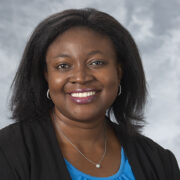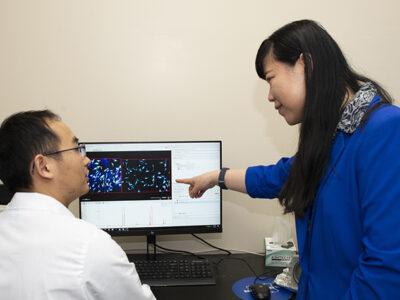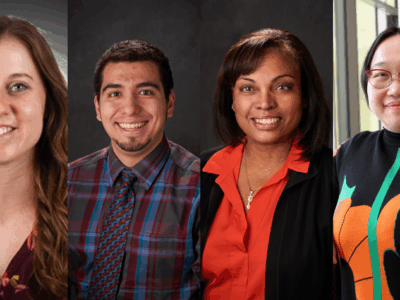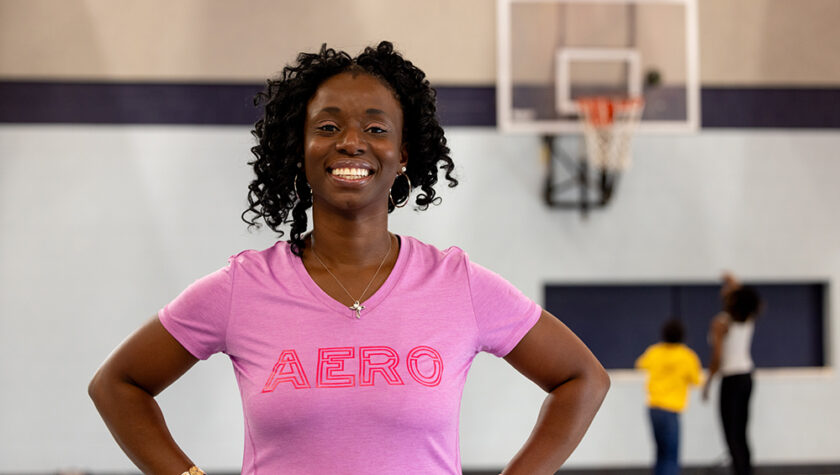
6
June

The CRoME Research Lab helps cultivate wellness through Afrobeat dance
By Jessica Steinhoff
Moving to Wisconsin was an adjustment for Olufunmilola Abraham (MS ’11, PhD ‘13), associate professor in the University of Wisconsin–Madison School of Pharmacy’s Social and Administrative Sciences Division. Growing up in Nigeria, movement in the form of dancing and walking was a major aspect of the lifestyle and culture. However, moving to Wisconsin, it was difficult and less motivating to walk often during the long and cold winters.
Although Abraham knew exercise could boost her mood during the winter months, logging laps and reps at the gym wasn’t motivating, so her efforts were inconsistent. The one thing that drew her to the gym regularly was a cardio dance class with uplifting music. It worked for her because it felt more like a fun hangout than a workout.
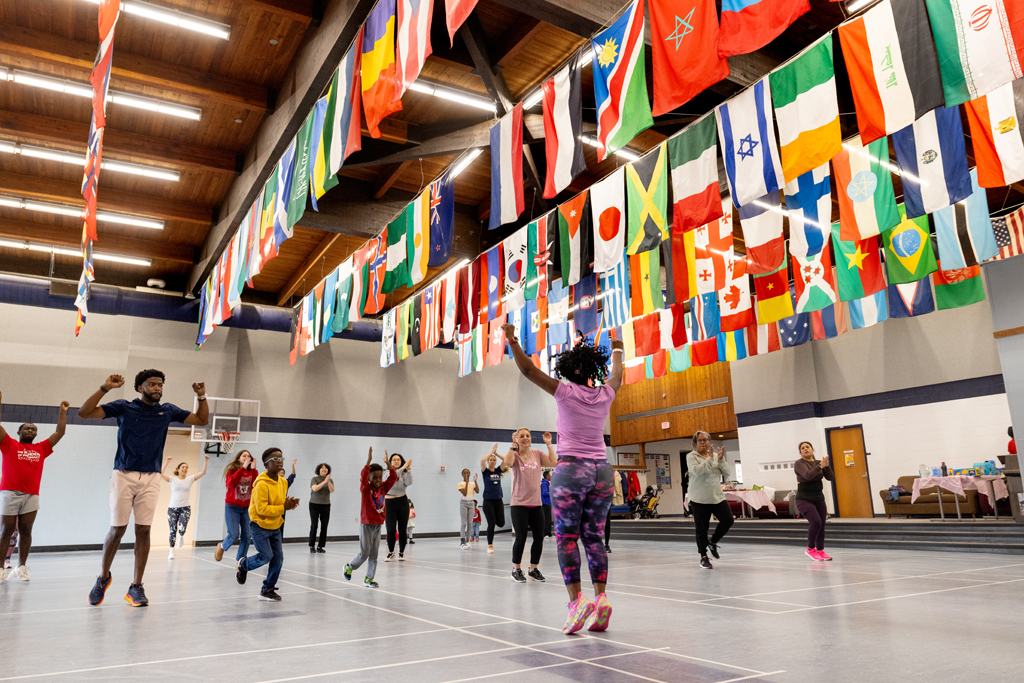
“Like many Africans, I grew up with dance all around me,” Abraham says. “It’s integrated into many parts of the culture, so we don’t think of it as exercise.”
Abraham knew she wasn’t the only one struggling with a sedentary daily routine and an aversion to traditional workouts. She heard similar stories from fellow African immigrants, including graduate students and community stakeholders that partnered with the CRoME (Collaborative Research on MEdication use & family health) team, the lab she directs.
An idea began to coalesce: If she brought a culture-celebrating dance class to places Black and immigrant families gather, would it yield measurable health outcomes? In spring 2023, she sought input from mentor Betty Chewning, a professor in the School’s Social and Administrative Sciences Division, who studies how specially designed tai chi programs help prevent falls among older adults.
“She said, ‘Funmi, you can totally do this,’ and that’s all it took,” Abraham recalls.
Dancing, laughing, healing
“What I want African immigrants and other Black families to understand is that physical activity is medicine, and that you don’t have to do it at a typical gym,” Abraham says.
She plunged into academic literature about dance’s therapeutic effects while pondering how to improve physical fitness, mood, social connection and other quality-of-life measures through music and movement.
The next step was creating a pilot program called Gospel and Afrobeat Dance Medicine (GAME) for adults and children 5 years and older.
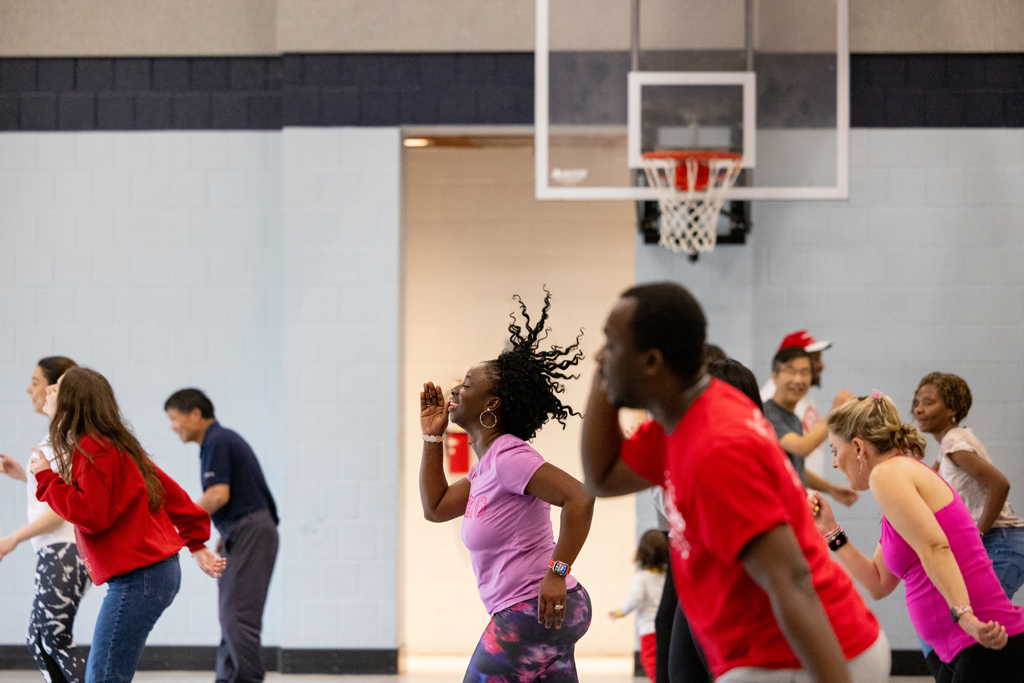
“Gospel because we’re sharing good news, not a sermon, and Afrobeat because Afrobeat music helps a lot of us connect with our cultural heritage,” Abraham says.
Taught by multiple dance instructors mostly of African descent, the program’s 60-minute classes meet twice a week at UW–Madison’s Eagle Heights Community Center and the Life Center church on Madison’s east side. Program instructors also guest-taught physical education classes for about 440 students at Sun Prairie’s Northside Elementary in February and piloted a successful after-school version of GAME there.
Group participation is GAME’s not-so-secret sauce. Parents were invited to dance with their kids in physical education, and a school assembly turned into a dance party, according to Stacey Christenson, a school site coordinator instrumental in bringing GAME to Northside.
“We brought the instructors to an assembly for Black History Month, and I thought we were going to watch them perform. They got the whole group dancing, teachers and students alike,” she says.
Christenson was impressed by the instructors’ ability to engage after-school students with dance-offs and other culture-specific physical activities.
“What I want African immigrants and other Black families to understand is that physical activity is medicine, and that you don’t have to do it at a typical gym.”
—Olufunmilola Abraham
“A lot of these kids are not movers,” she says. “They don’t like gym class, but now they’re choreographing their own dances and finding their leadership skills.”
In collaboration with Abraham, Northside’s two principals, and other stakeholders, Christenson hopes to expand GAME throughout the Sun Prairie Area School District so other families can benefit as well.
Leadership meets scholarship
Abraham’s team selects songs with lyrics even the youngest dancers can enjoy, and that deliver hope to people wrestling with loneliness off the dance floor. They also search for other qualities that make a song dance-worthy: strong beats, infectious rhythms, and melodies that make you want to sing along. For a taste of a recent class playlist, check out the tracks “Jerusalema” by Master KG and “Gold” by Limoblaze.
While Afrobeat music is famous for its rhythmic fusion of traditional West African sounds and American jazz and funk grooves, Afrobeat dance is known for its intricate choreography, which includes stamping, hopping, and movements of the arms, shoulders, and hips. It’s an excellent way to build stamina and coordination, as well as a healthy sense of humor.
“I’m a horrible dancer, but it’s such a fun and supportive experience,” says Eagle Heights class attendee Beth Burnside, who’s also executive co-director of UW–Madison’s Institute for Clinical and Translational Research (ICTR) and associate dean of team science and interdisciplinary research the School of Medicine and Public Health. “The people in that class aren’t self-conscious, and I think that’s because the teachers are so joyful and welcoming. We laugh a lot, and we really interact with each other whether it’s by dancing in a circle, with a partner or in a game of ‘Simon Says.’”
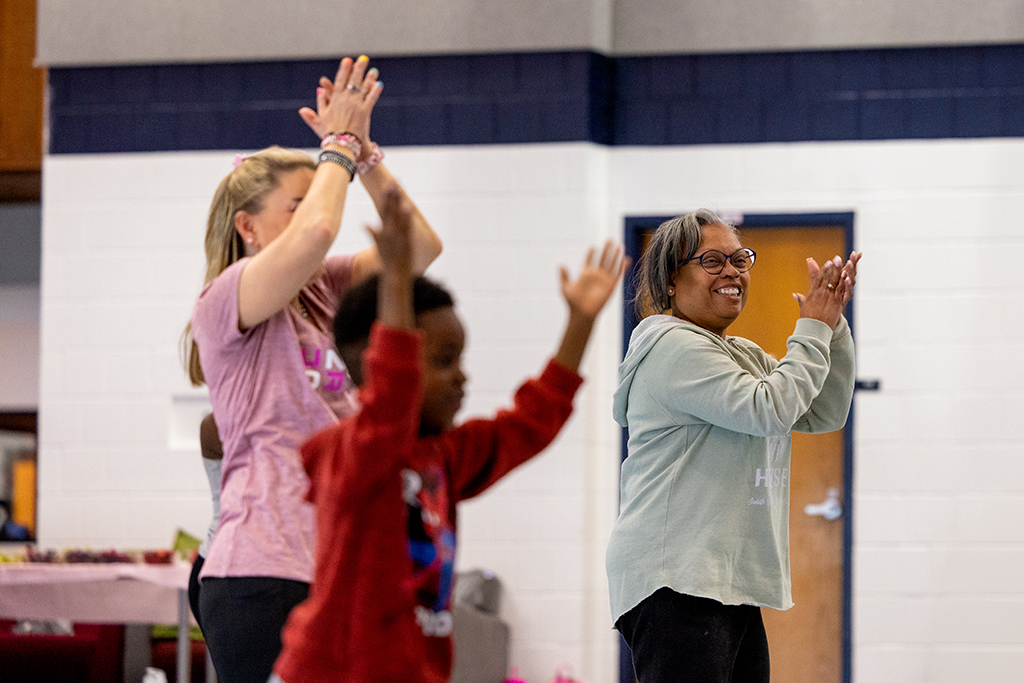
Abraham’s GAME program research team features several School of Pharmacy colleagues: Professors Chewning (Social and Administrative Sciences Division) and Eva Vivian (Pharmacy Practice and Translational Research Division); Health Services Research in Pharmacy graduate student Ejura Salihu; and PharmD students Ellie Maday and Grace Klubertanz, both of whom are seasoned dancers. Other teammates include faculty from the departments of kinesiology (Lisa Cadmus-Bertram) and African cultural studies (Adeola Agoke), international graduate students in several academic disciplines, and professional dance instructors from the community.
Abraham leads the class with an upbeat attitude and encouraging approach. Watching her teach is fulfilling for Burnside, who witnessed Abraham’s journey through ICTR’s KL2 Scholar Program, which provides training and mentorship to early-career clinical and translational investigators.
“It’s an honor to watch GAME develop because it’s important work and something we wholly support at ICTR,” Burnside says. “Funmi is building leaders and trying to figure out how scientists and the community can co-design a culturally relevant experience to increase healthful behaviors.”
ICTR recently awarded GAME a Clinical and Community Outcomes Research Pilot Award, which involves a study running from April 2024 to March 2025. Its goals include assessing the program’s feasibility for different community stakeholders, gathering attendee feedback to identify opportunities for improving and sustaining the program, and assessing the program’s impact on mental health, sleep, physical fitness, stress management, and cultural connection.
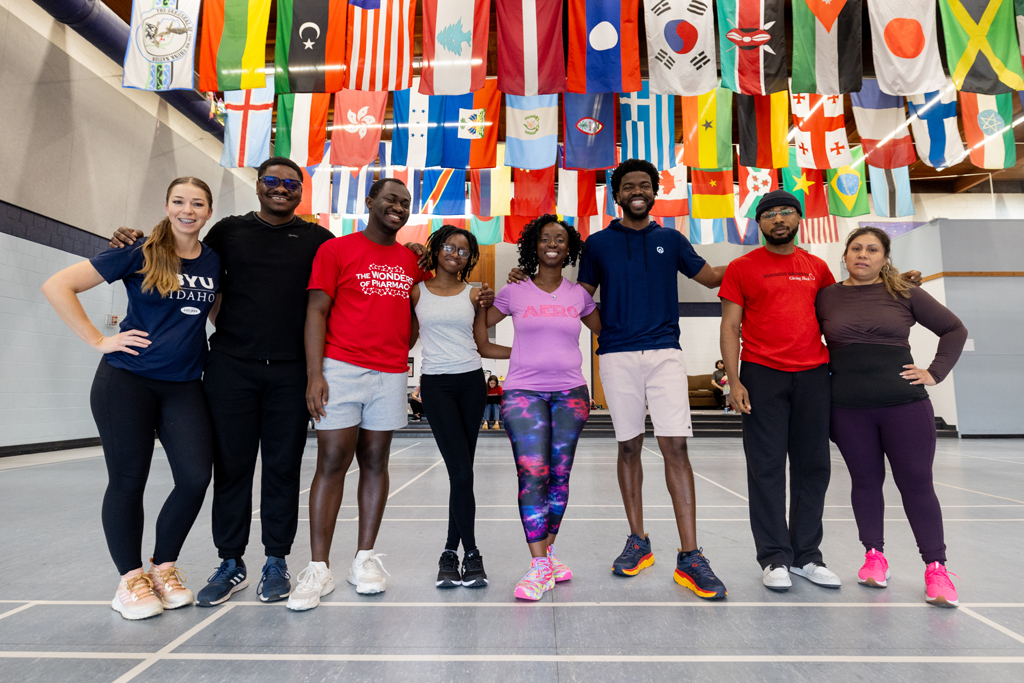
Program participants will provide self-reports that share snapshots of their progress in these wellness domains, Abraham says, and this preliminary data will be used to apply for a National Institutes of Health grant that could expand GAME to other sites.
Abraham says the ICTR grant helps GAME rent space for classes, compensate instructors and collect data in a rigorous way, following study subjects over extended time periods. The team also gathers extensive participant feedback to assess the program’s feasibility for different settings and audiences. Many participants have shared that they would attend the program again because it’s an intergenerational, culturally relevant and fun way to stay physically active. So far, the feedback has shown that GAME is making a mark in a marginalized population where health problems are widespread and health care can be hard to access. Effective interventions that don’t require medication are especially valuable in this context, Abraham says.
“If you have a heart condition or a mental health condition, health care providers are quick to prescribe drugs, but physical activity can also help in many cases,” she says. “There is still so much to be learned, but I think one reason dance is medicine is because it builds connections between people.”


